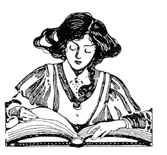
Reply from an American to a “Letter from an American”
DOES THE LADY KNOW WHAT SHE’S TALKING ABOUT?
Heather Cox Richardson, a graduate of Harvard University, is a professor of history at Boston College, where she teaches courses on the Civil War, Reconstruction, the American West, and the Plains Indians. Her several books include How the South Won the Civil War: Oligarchy, Democracy, and the Continuing Fight for the Soul of America (2020), To Make Men Free: A History of the Republican Party (2014), and Wounded Knee: Party Politics and the Road to an American Massacre (2010). In addition to being an academic, Richardson enjoys a substantial social-media following. Her Facebook page has 1.7 million followers, and her “Letters from an American,” an email newsletter about “the history behind today’s politics,” reaches some 1.2 million recipients.
On June 24, 2022, during the House Select Committee hearings to investigate the January 6 “attack” on the U.S. Capitol, Richardson penned a letter (heathercoxrichardson.substack.com/p/june-24-2022) about the U.S. Supreme Court’s Dobbs v. Jackson Women’s Health Organization decision that essentially overturned Roe v. Wade (1973). Richardson uses the investigation to introduce her opinions about Dobbs. She apparently detects some parallel, for in citing the investigation — telling us, “We heard overwhelming proof that Donald Trump and his congressional supporters tried to overturn the will of the voters” — she suggests that the former president, via the Supreme Court, actually succeeded in overturning the will of the voters. Richardson bases this conclusion on the fact that the three associate justices Trump nominated to the court “stripped a constitutional right from the American people.” If all she means is the three associate justices were instrumental in reversing Roe, then she is correct. But if she means Trump’s nomination of these judges establishes that their decisions were wrong — e.g., influenced by considerations outside the law — she should give us proof. A Supreme Court majority requires the votes of more than three justices. And whether Trump or some other president nominated them, associate justices undergo examination by congressional members of both parties and must be approved by a majority.
The associate justices Trump nominated (Neil M. Gorsuch, Brett M. Kavanaugh, and Amy Coney Barrett) are persons of extensive education and experience — education and experience comparable, if not superior, to those of Associate Justices Ketanji Brown Jackson (nominated by Joe Biden) and Sonia Sotomayor and Elena Kagan (nominated by Barack Obama). Yet, sadly, Richardson appears to believe the first three are unfit simply by virtue of who nominated them and what they decided regarding Dobbs. There should be no question that their decisions were rendered with the same or a similar degree of integrity and legal competency as those of their fellow justices or even those who rendered Roe. Although perhaps I am wrong. But if I am wrong, Richardson must show how these three Trump-nominated justices rendered a legally incorrect decision or were criminally biased.
You May Also Enjoy
Just as Jesus’ command to love one another cannot be seen as a part-time obligation, so too His call to peacemaking is unconditional, unlimited, and uncompromising.
The outcome of the pro-life struggle hinges on the legal status of abortion. As long as it remains legal, we're losing; once it's outlawed, we've triumphed.
Notre Dame's president honored Joe Biden for putting "the good of the nation above partisan victory," with "respectful dialogue" and "honorable compromise."

